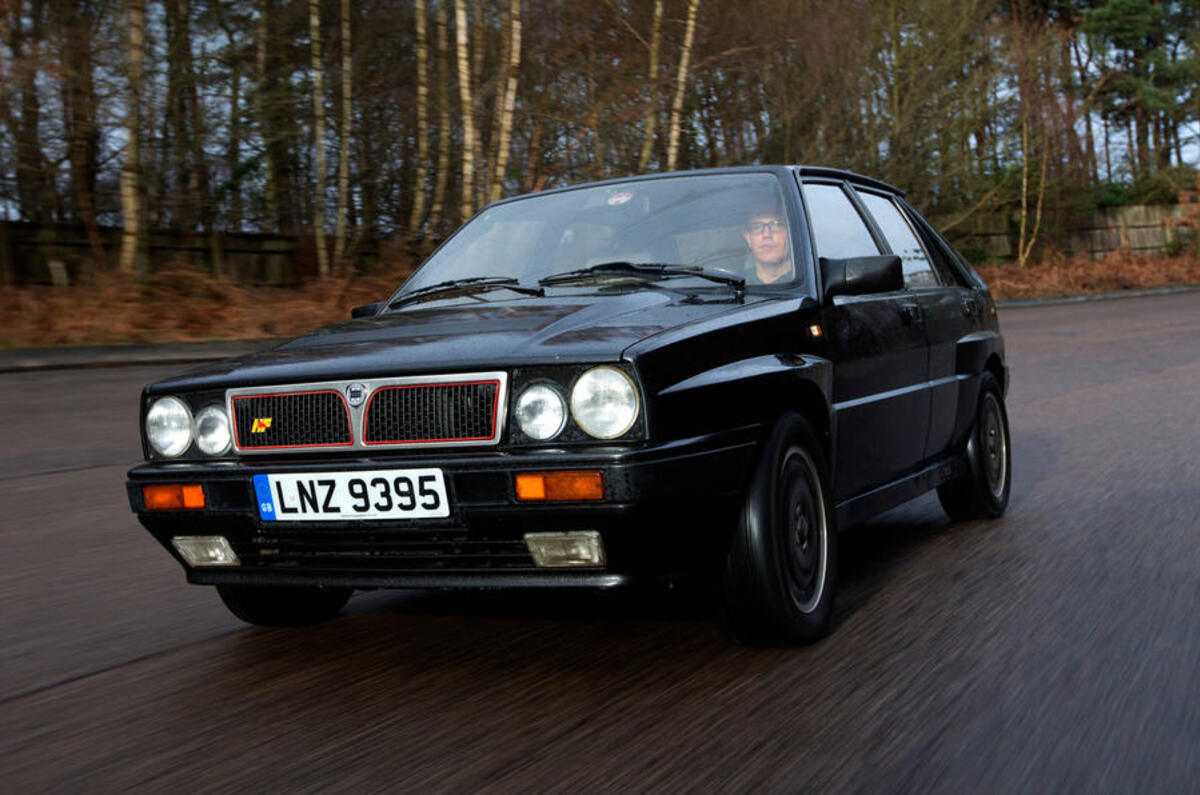All things considered, Lancia had a good year in 2020.
The things to consider are that there was a pandemic (obviously), that the marque is now sold only in its native Italy and that its sole model, the Ypsilon city car, is a decade old this year. Despite which, no less than 43,081 Ypsilons found buyers – slightly fewer than the 43,165 people who bought a DS Automobiles product. And the DS 3 Crossback and DS 7 Crossback aren’t remotely close to 10 years old.
By now, in fact, Lancia was expected to have died as the appeal of the Ypsilon withered. Fiat Chrysler Automobiles had investigated the possibility of reviving Lancia, not least by using the pretty 1960s-Fulvia-coupé-inspired Fulvietta concept as a flagship. But according to Olivier François, who led that investigation and remains head of the Fiat brand within Stellantis, it simply wasn’t possible to make a business case for the marque.
Today, however, Lancia is part of Stellantis and bundled with Alfa Romeo and DS as one of three premium brands. The difference now is that, in theory, there are many more platforms from which to construct a Lancia line-up. In theory, because the rebuilding of Lancia must be around the 456th priority for Carlos Tavares and his team, which has plenty on its plate, not least the struggles of Lancia’s premium stablemates.
But there may be an early, relatively low-cost win to be had, which is to replace the Ypsilon using the platform of the new electric Fiat 500. A premium electric city car is surely the ideal evolution for this chic little runabout, requiring a reasonably modest investment in new skin panels and a different interior.
The renewal of the Ypsilon isn't enough on its own to interest any dealer group outside Italy, but more ambitiously, how about an electric Fulvia coupé reimagined as a small, luxurious fastback SUV, and an electric four-wheel-drive Delta Integrale? The hot Delta is now Lancia’s most famous model, and the prices these cars command prove that it still resonates.
Picking through back catalogues isn’t the only way to revive a brand, of course: something new and knockout usually provides a more reliable business future. Lancia was all about understated, elegant Italian luxury, as well as refined and technologically accomplished performance. All qualities entirely compatible with electrification. So a range of electric Lancias, perhaps sold on subscription only, isn’t impossible to imagine.
Of course, these idly speculative thoughts are about a low-priority brand. But it’s good to dream, and Tavares has said that Stellantis has no plans to ditch any marques. One Luca Napolitano is the boss of the Lancia brand; let’s hope he’s ambitious for it.
READ MORE
Stellantis: the facts and brands behind the world's newest car giant




Join the debate
Add your comment
I believe that Lancia should be allowed to stay buried.
Yes it was a great luxury marque once, but has meant nothing (in luxury car terms) in living memory outside of Italy since.
Lancia no longer rallies, so the likes of Stratos and Integrale are unlikely to ever be revived (the finances just arent there and anyway Interest is waning for WRC).
Of late Lancia has suffered the ultimate indignity of a badge engineered FIAT 500 (Ypsilon), and worse a few years back - various rag-bag Chryslers!
If Brands like Alfa-Romeo and Maserati with all their illustrious history are struggling, I am afraid there is no hope for Lancia..... and that comes from one who was the biggest Stratos fan.
Completely agree! Manufacturers seem too willing to let brands live well past their sell-by dates. It must come down to corporate ego and the belief they can do better than their predecessors (and maybe not having any **** stick to them when they fail!).
Premium cannot be created from nothing and turned overnight into showroom success. Just ask Toyota (Lexus), Nissan (Infiniti) and probably Hyundai with Genesis. DS has nothing to build on, no heritage, no real brand values, it is massively struggling in Europe. With such a massive portfolio of marques, why not admit a subtle defeat by building on proper heritage and brand values by merging Lancia with DS (with it's dealer network and production models), then gradually phase out the DS bit?
Yes, Lancia keeps me and others in a job.
There is a market for a medium and large Lancias. The Thema was a highly regarded executive saloon, and many company car drivers loved their Thema's and bought then after their term officially ended. Whilst the Kappa that followed or the Thesis that came after that never came to the UK they had a loyal market overseas. Further back, the Flaminia, Flavia and Aurelia were all highly regarded in their day.
The key is to clearly differentiate between Alfa Romeo, Maserati and DS, but if 2/3rds - 3/4s of the car is based upon a common architecture, the remaining can be used to give each the traditional qualities their owners expects. Whether that is a sporting characteur, or something with Gallic levels of suspension suppleness is somethhing for them to consider.
If they're to cull something, downgrade DS from a brand back to a model. Yes, the original Citroen DS was a ground breaking distinctive car, but it was merely a model.